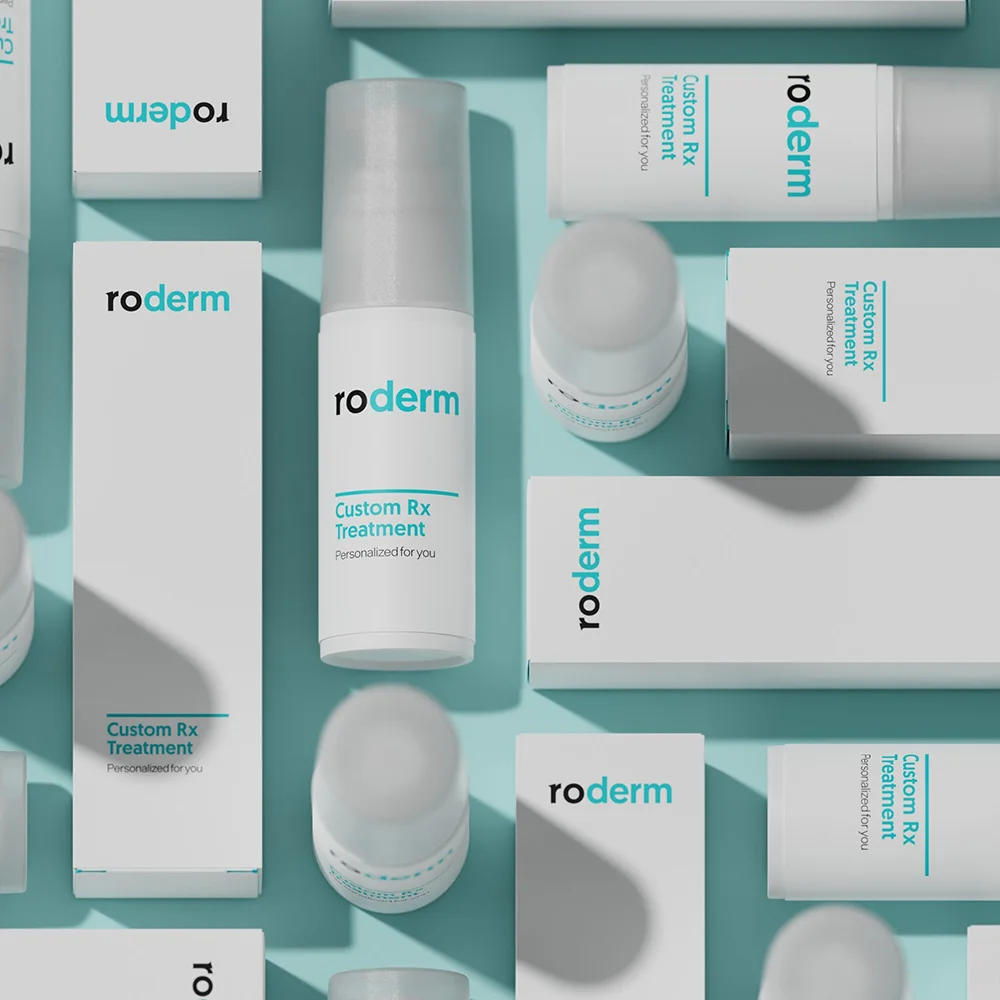Here's what we'll cover
Here's what we'll cover
Here's what we'll cover
Acne is unfortunately not always an isolated occurrence of the teenage years. The inflamed, agitated pustules follow many people into adulthood and always seem to pop up at the most inconvenient times.
So turning to a collagen powder to support healthy skin and rid yourself of those pesky pimples would be an easy solution. Collagen supplements boast a variety of beauty-enhancing claims on the bottle, but can collagen help with acne?
Let’s dive into what collagen is, its role in skin health and acne, and whether you should take it for acne-prone skin.
What is collagen?
Collagen is the most abundant protein in the body, and its main role is to maintain the structure of connective tissues like tendons, ligaments, and the skin. It helps create a firm and smooth skin barrier while retaining water to support skin hydration (Bolke, 2019).
The body produces collagen when the right building blocks are present. And diet plays a role in supplying the body with those raw materials. The primary building blocks of collagen are three amino acids: glycine, proline, and hydroxyproline. You can get these amino acids through protein-rich foods like fish, meat, poultry, and legumes, or through foods high in collagen, like bone broth.
You can also get these amino acids through supplements. Powdered collagen supplements (usually from bovine or marine collagen) supply the body with these amino acids to support collagen levels and production processes in the body. Collagen can also be found in topical skincare products for direct delivery to the skin.
Is collagen good for acne?
While adequate collagen levels are important for general skin health, there’s no evidence that collagen is beneficial in treating or preventing acne.
The sequence of events that leads to acne is not totally understood, but there are some known causes and contributing factors. These include hormone changes, excess exposure to sunlight, and some medications (Sutaria, 2021). There is ongoing discussion regarding the potential role of diet in acne as well. Still, the discussion has been largely about the potential role of dairy or foods with a high glycemic index. It has not included a significant discussion about collagen or building block amino acids.
Much of the research on collagen (in supplements and added to skincare ingredients) focuses on this protein’s role in aging skin, not acne (Reilly, 2021; Aguirre-Cruz, 2020). Though collagen does seem to hold some promise in that arena, available research doesn’t seem to show benefits in terms of acne.
Benefits of collagen for skin health
The body’s collagen production naturally declines with age, and this decline dramatically increases during menopause (Lin, 2020; Reilly, 2021). This loss of collagen can be associated with signs of aging skin, including thin, dry skin, fine lines, brown spots, and wrinkles (Lin, 2020; Bolke, 2019)
A large 2021 review indicated that collagen supplements appear beneficial in reducing wrinkles and improving skin hydration and elasticity (de Miranda, 2021). Collagen supplements were well-tolerated, with little to no side effects. But that doesn’t mean they help with all skin conditions.
Does collagen help with acne scars?
Much like acne itself, there’s no evidence to suggest collagen helps with acne scars, although claims like improved skin elasticity, hydration, and skin texture may make it seem like those benefits should trickle over to smoothing these post-pimple spots.
One day, there may be research to support the use of collagen proteins to lessen acne scars, but we don’t have that evidence yet.
Acne scarring is typically related to inflammation and damage to collagen skin fibers. Treatment of acne scarring is highly individualized, but many strategies—like chemical peels and laser treatments—work by stimulating collagen remodeling or forming new collagen (Gozali, 2015). While this association between collagen and acne scarring treatment exists, supplementing with or even applying topical collagen products to the skin is not currently a recommended treatment plan for acne scarring.
Other adult acne treatments
You’re not alone if you still struggle with acne as an adult. There are a variety of effective treatments available that can help with your complexion. Options include both over-the-counter and prescription topical treatments (lotions, creams, and gels) and oral medications.
Over-the-counter acne treatments include (Eichenfield, 2021):
Benzoyl peroxide
Adapalene
Prescription acne medications include (Eichenfield, 2021):
Oral or topical antibiotics (such as doxycycline and minocycline)
Spironolactone
Most retinoids (including tretinoin)
Hormonal birth control
Tretinoin Important Safety Information: Read more about serious warnings and safety info.
Should you take collagen for acne breakouts?
Collagen is not an effective acne treatment option. Taking collagen supplements may have some benefits for aging skin, but there’s no indication that collagen can prevent blemishes, reduce pimples, or alleviate post-acne scarring.
If getting your acne under control is your main goal, there are probably better solutions for you to invest your time and effort into instead of collagen products. For example, eating a healthy, balanced diet that includes foods rich in vitamin A (leafy greens, tomatoes, red bell pepper), vitamin D (fatty fish), and B vitamins (whole grains) could have anti-inflammatory effects on the skin and reduce redness (Reilly, 2021).
It can be challenging to know how to treat your acne, so it’s best to reach out to your primary care provider or a dermatologist for an evaluation and guidance on the best path forward. There is no magic pill, supplement, or cream to clear your skin. It’s important to be patient with yourself, as even effective treatments can take time to work.
DISCLAIMER
If you have any medical questions or concerns, please talk to your healthcare provider. The articles on Health Guide are underpinned by peer-reviewed research and information drawn from medical societies and governmental agencies. However, they are not a substitute for professional medical advice, diagnosis, or treatment.
References
Aguirre-Cruz, G., León-López, A., Cruz-Gómez, V., et al. (2020). Collagen hydrolysates for skin protection: oral administration and topical formulation. Antioxidants (Basel, Switzerland) , 9 (2), 181. doi:10.3390/antiox9020181. Retrieved from https://www.ncbi.nlm.nih.gov/pmc/articles/PMC7070905/
Bolke, L., Schlippe, G., Gerß, J., & Voss, W. (2019). A collagen supplement improves skin hydration, elasticity, roughness, and density: results of a randomized, placebo-controlled, blind study. Nutrients , 11 (10), 2494. doi:10.3390/nu11102494. Retrieved from https://pubmed.ncbi.nlm.nih.gov/31627309/
de Miranda, R. B., Weimer, P., & Rossi, R. C. (2021). Effects of hydrolyzed collagen supplementation on skin aging: a systematic review and meta-analysis. International Journal of Dermatology , 60 (12), 1449–1461. doi:10.1111/ijd.15518. Retrieved from https://pubmed.ncbi.nlm.nih.gov/33742704/
Eichenfield, D. Z., Sprague, J., & Eichenfield, L. F. (2021). Management of acne vulgaris: A review. JAMA , 326 (20), 2055–2067. doi:10.1001/jama.2021.17633. Retrieved from https://pubmed.ncbi.nlm.nih.gov/34812859/
Gozali, M. V. & Zhou, B. (2015). Effective treatments of atrophic acne scars. The Journal of Clinical and Aesthetic Dermatology , 8 (5), 33–40. Retrieved from https://www.ncbi.nlm.nih.gov/pmc/articles/PMC4445894/
Lin, P., Hua, N., Hsu, Y. C., et al. (2020). Oral collagen drink for antiaging: antioxidation, facilitation of the increase of collagen synthesis, and improvement of protein folding and DNA repair in human skin fibroblasts. Oxidative Medicine and Cellular Longevity , 2020 , 8031795. doi:10.1155/2020/8031795. Retrieved from https://pubmed.ncbi.nlm.nih.gov/32454944/
Reilly, D. M. & Lozano, J. (2021). Skin collagen through the lifestages: Importance for skin health and beauty. Plastic and Aesthetic Research , 2021 . doi:10.20517/2347-9264.2020.153. Retrieved from https://parjournal.net/article/view/3863
Rocha, M. A. & Bagatin, E. (2018). Adult-onset acne: prevalence, impact, and management challenges. Clinical, Cosmetic and Investigational Dermatology , 11 , 59–69. doi:10.2147/CCID.S137794. Retrieved from https://www.ncbi.nlm.nih.gov/pmc/articles/PMC5798558/
Sutaria, A. H., Masood, S., & Schlessinger, J. (2021). Acne vulgaris. StatPearls . Retrieved on May 15, 2022 from www.ncbi.nlm.nih.gov/books/NBK459173/








